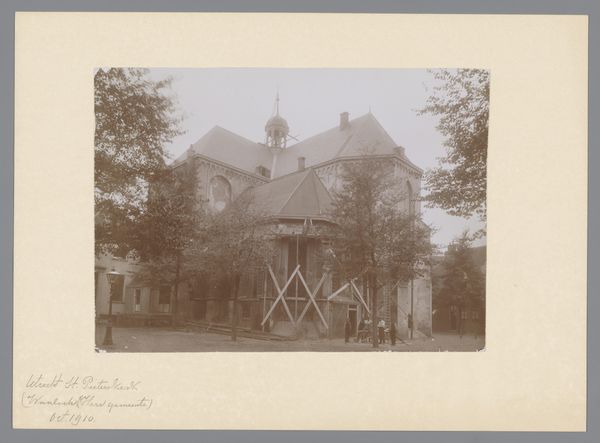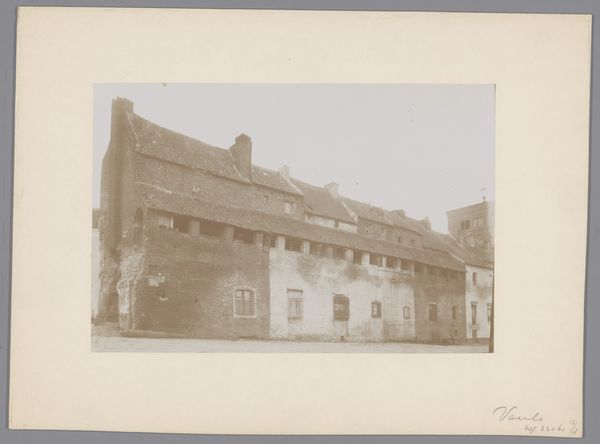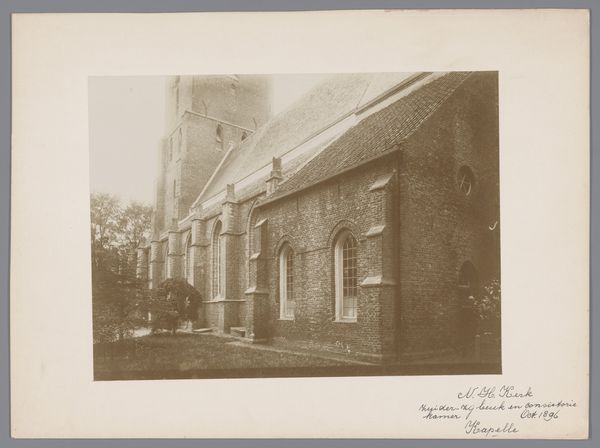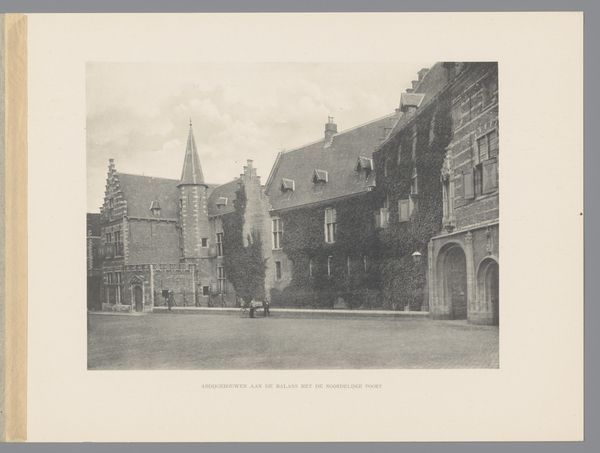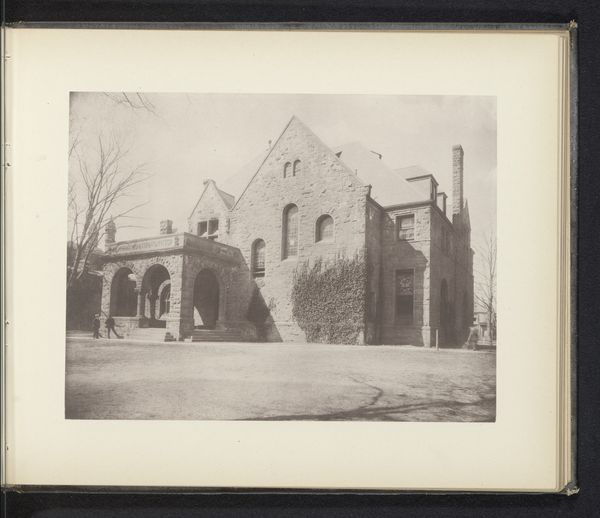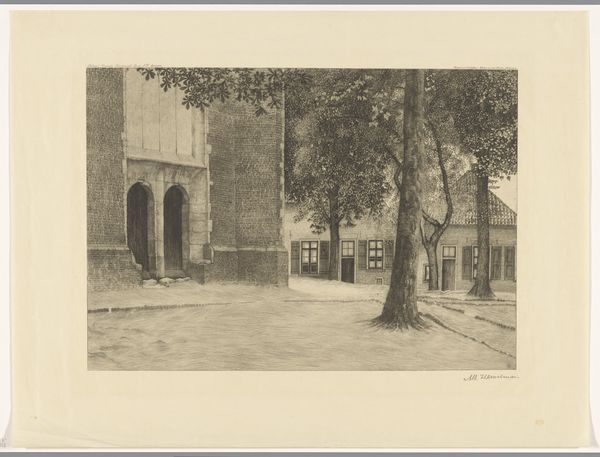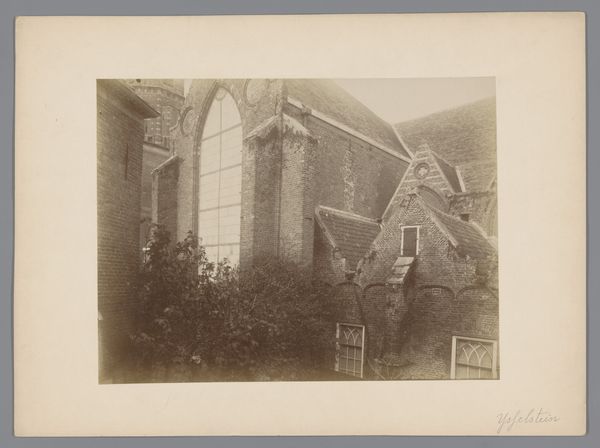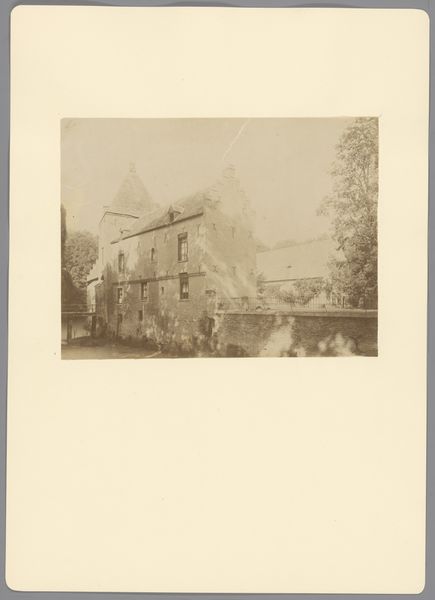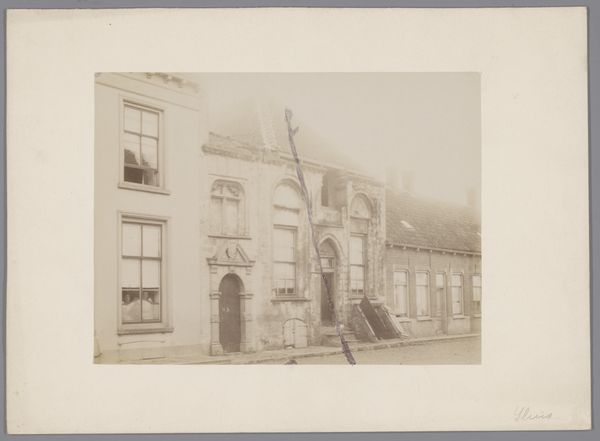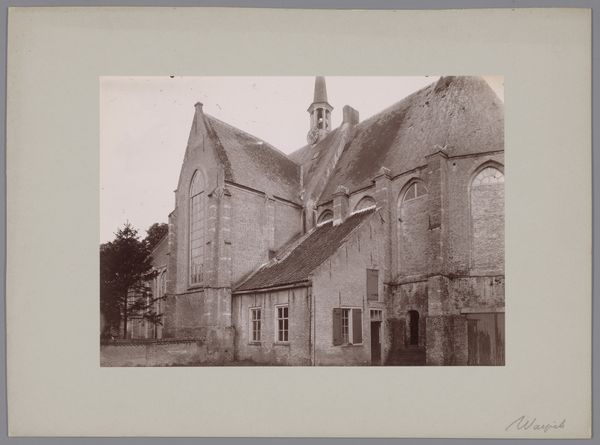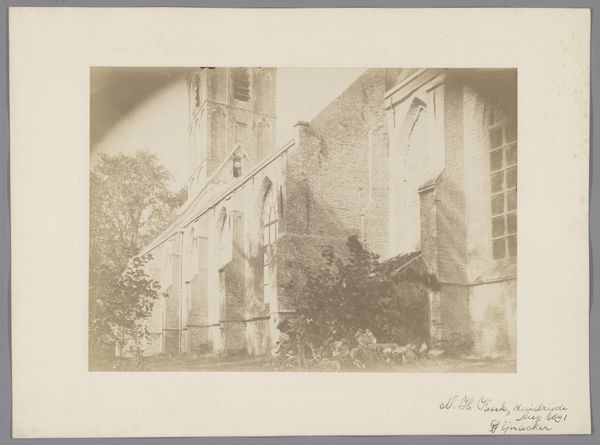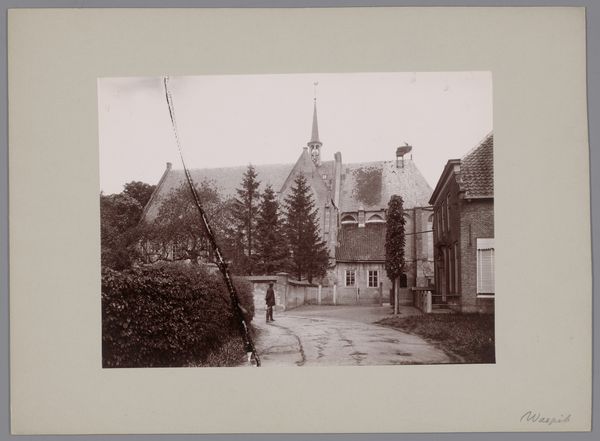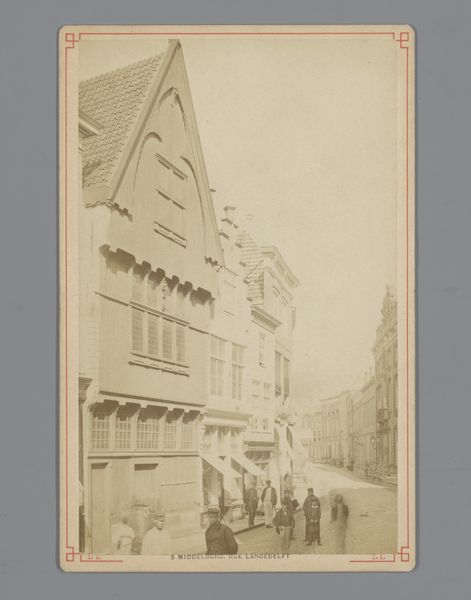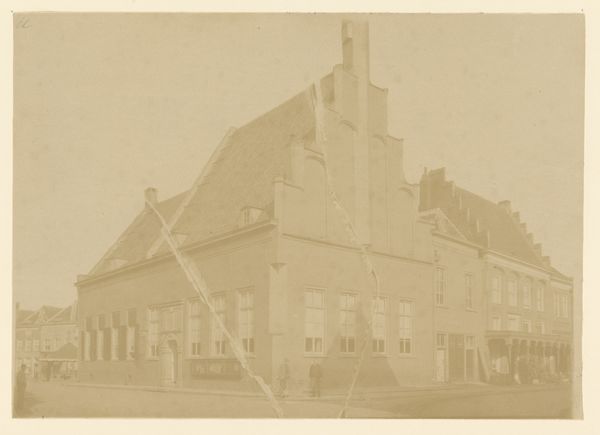
Dimensions: height 158 mm, width 218 mm
Copyright: Rijks Museum: Open Domain
This photograph of the Sint-Pieterskerk in Utrecht was produced around 1910 using traditional photographic techniques, likely involving a glass plate negative and chemical development processes. The sepia tone speaks to the materials available at the time, influencing the image's overall aesthetic. This isn't just a snapshot; it's a result of careful labor, from setting up the shot to the darkroom work. The choice of perspective, the depth of field, and the tonal range were all carefully considered. It's interesting to consider how this image might have been used. Was it for documentation, artistic expression, or perhaps urban planning? The very act of photographing the church imbues it with cultural significance, turning it into a subject worthy of attention and preservation. Considering the time it was made, photography itself was still a relatively novel medium, requiring specialized knowledge and equipment. So, in appreciating this image, we’re also acknowledging the labor and skill involved in its creation. By recognizing the social and cultural context, we can understand this photograph as more than just a historical document.
Comments
No comments
Be the first to comment and join the conversation on the ultimate creative platform.
